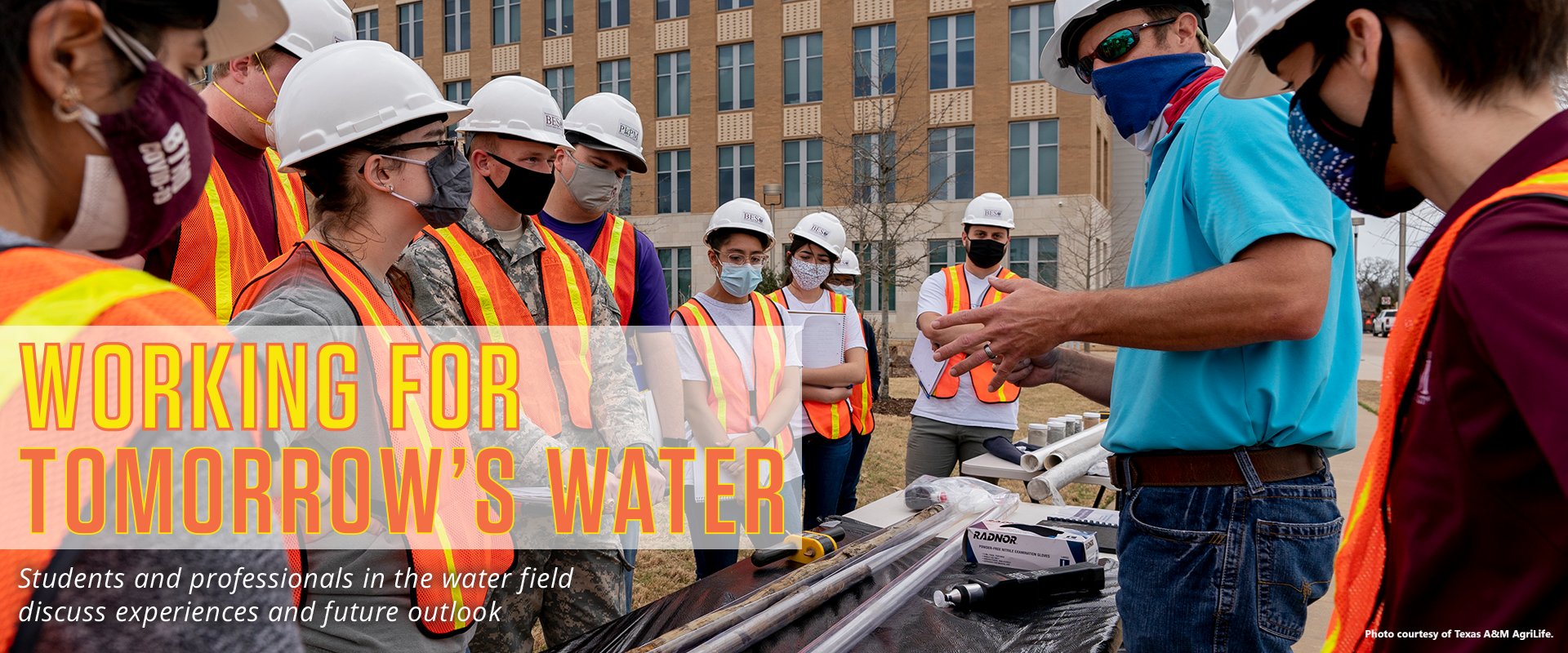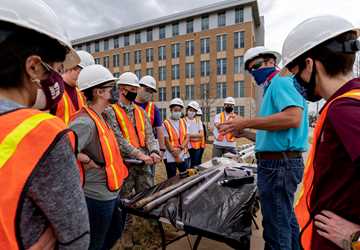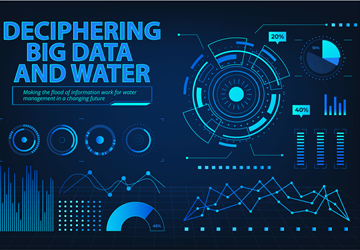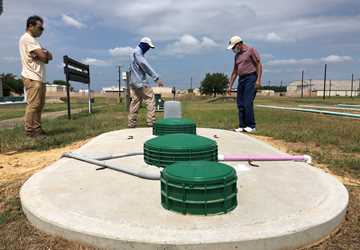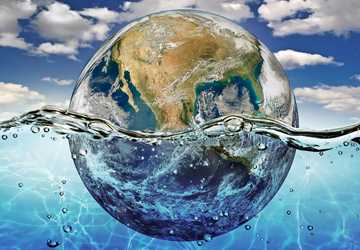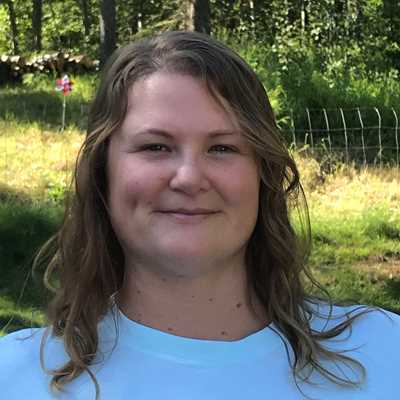A growing U.S. population means growing demands on the U.S. water system. But keeping the water system running, let alone expanding it to meet future demands, requires a skilled and varied workforce. That means students interested in a career in water need to prepare themselves for the high-tech, data-dependent world of the future water industry.
In addition to the increase of 1.2 million people between 2019 and 2020, the U.S. population is aging. According to the U.S. Census Bureau, 56.1 million people, or 17% of the population, are 65 or older. The changing age demographic of the population is directly linked to the need for workers in the wastewater industry.
The U.S. Bureau of Labor Statistics estimates that “about 10,500 openings for water and wastewater treatment plant and system operators are projected each year, on average, over the decade. All of those openings are expected to result from the need to replace workers who transfer to other occupations or exit the labor force, such as to retire.”
The need for wastewater workers is not a new problem. An article called “Water, but No Workers” appeared in the summer 2019 issue of txH2O that discussed the role educational institutions in Texas were filling by providing more water-related education to support those in the workforce and produce graduates ready to fill the growing need for workers in the water industry.
Estimated reading time: 12 minutes
Students and professionals in the water field discuss experiences and future outlook
More Information
- Water, but no workers, txH2O
- Water security for Texas: a post-secondary education pathway for water workforce readiness, Texas Water Journal
Want to get txH20 delivered right to your inbox? Click to subscribe.
Two years later, there is still a shortage of workers in the water industry, and it is anticipated that the shortage will become greater as water facilities are forced to expand operations in response to population increases.
Shannon Sauceman, human resource manager at North Texas Municipal Water District (NTMWD), said they never had a problem finding people to work, but the COVID-19 pandemic has made recruitment of good quality candidates more difficult. This presents a problem because they are expanding operations in response to the growing population in Texas, according to Galen Roberts, assistant deputy of water resources at NTMWD.
NTMWD serves communities in the north and east Dallas metro areas, one of the country’s fastest growing metroplexes. The water district will be unable to meet consumer needs if they do not have enough people to make it happen.
Those water workers increasingly need to make use of instrumentation and data analysis in the changing water landscape, making these important skills for anyone who wants to work in the water sector.
“An instrumentation, data analytics type background is going to continue to be useful as we acquire more data and make more data-driven decisions,” said Scott Hoelzle, wastewater conveyance system manager for NTMWD.
Finding enough well-skilled workers for an expanding water system is not the only problem on the horizon. Roberts said finding new water supplies is a growing issue. The water industry is having to get creative about the sources they pursue and the technologies they use to treat and make the water available for people. Understanding changing demography and what it means for future water demands is essential, he said, especially as the changing climate impacts available water and the resiliency of existing supplies.
Roberts explained that the water industry will need people with the skills to address these needs.
“There are the needs of today and the needs coming in the next five to 10 years as we’re trying to meet growing demands,” he said. “But there’s also a changing landscape in the water industry, and I’d say the wastewater industry as well, that will require continued technical skills and perhaps new skills that aren’t as prevalent in the water industry today.”
So, how well prepared are students from water programs for their work in the water industry?
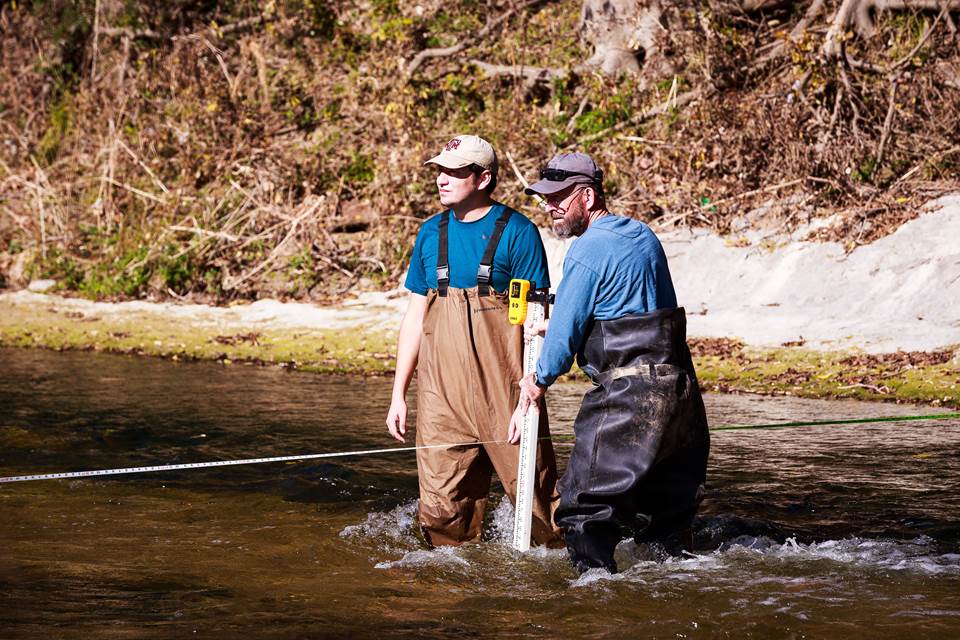
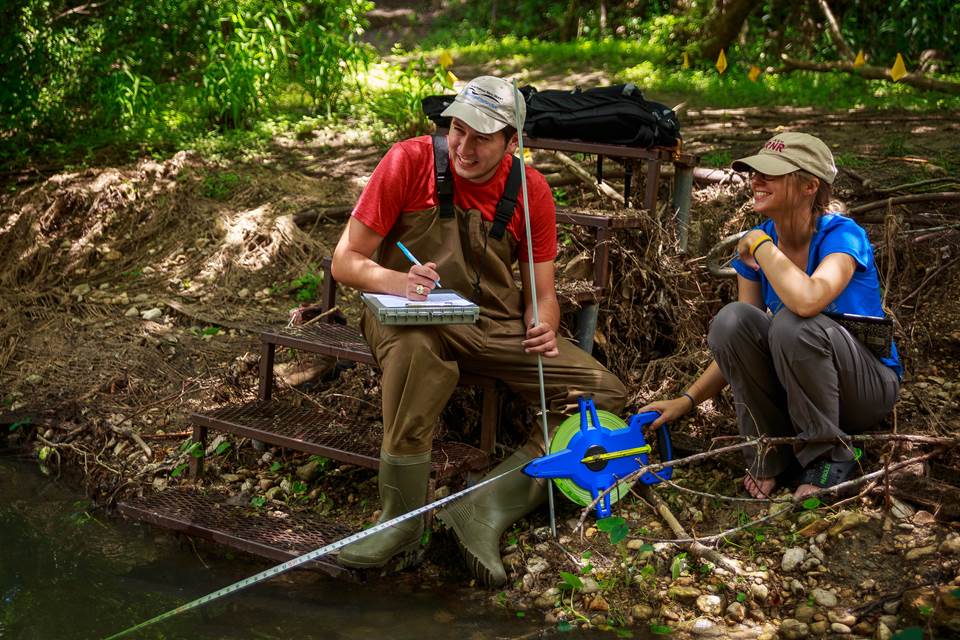
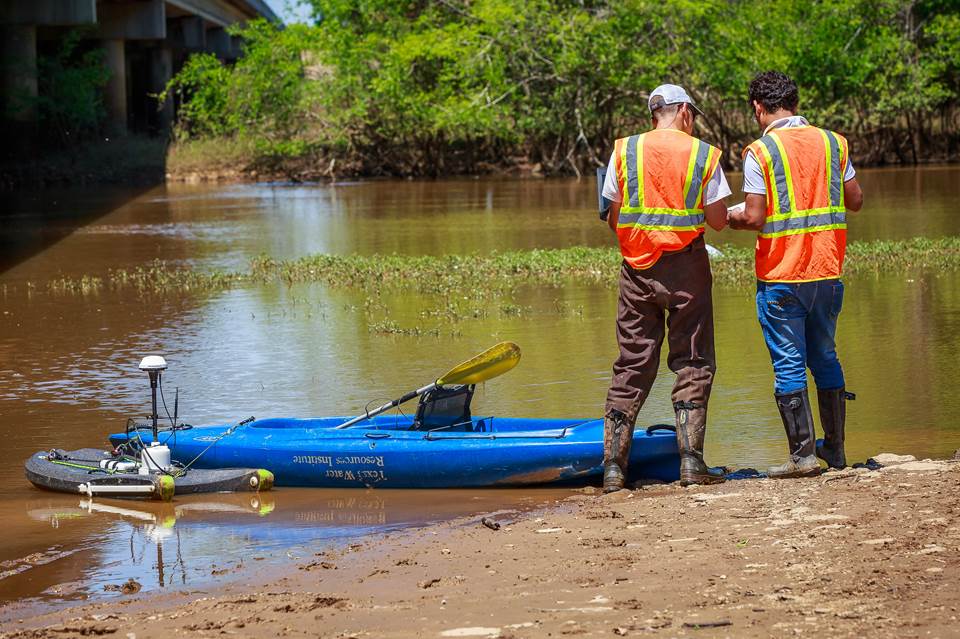
What employers are looking for
There are a variety of jobs in the water industry, everything from operators to researchers to administrative staff to lawyers. All positions require some type of technical skills, such as working in a lab and electrical and mechanical knowledge, as well as a basic understanding of geographic information systems (GIS). Understanding of GIS was a technical skill that several of the industry professionals identified as important.
Zeke Campbell, assistant deputy of water treatment and conveyance for NTMWD, said an aptitude in math is also useful across many positions.
“Mathematical skills are good to have,” he said. “You will use those skills if you’re doing some budgeting or trying to figure out some chemical dosages or tank volumes. If you’re good at math, in general, it’s going to be a lot easier for you.”
There are the needs of today and the needs coming in the next five to 10 years as we’re trying to meet growing demands. But there’s also a changing landscape in the water industry.
Aside from technical skills, there are some soft skills that are valued regardless of the position. Rachel Ickert, water resources engineering director for the Tarrant Regional Water District (TRWD) said that TRWD, as with most employers, want applicants with the right attitude who are a good fit for the position and the team. They also want people who are willing to work and learn. Hoelzle of NTMWD had much the same to say.
“Almost even a bigger part than having a technical skill coming in is having the right attitude and personality, willing to learn and wanting to learn and wanting to do the best that you can do,” he said. “That can set you apart in a heartbeat.”
Good communication skills are also overwhelmingly valuable for employees at all levels. Both verbal and written communication are needed for collaborating, working in teams and maintaining relationships with stakeholders. Good communication is especially valuable for working with elected boards, said Jason Gehrig, infrastructure engineering director at TRWD.
Roberts of NTMWD said that flexibility and critical thinking are especially important skills for future water workers.
“Technical skills are requisite for a lot of these positions, but applying the knowledge that’s learned in school to the real-world setting is also necessary,” he said.
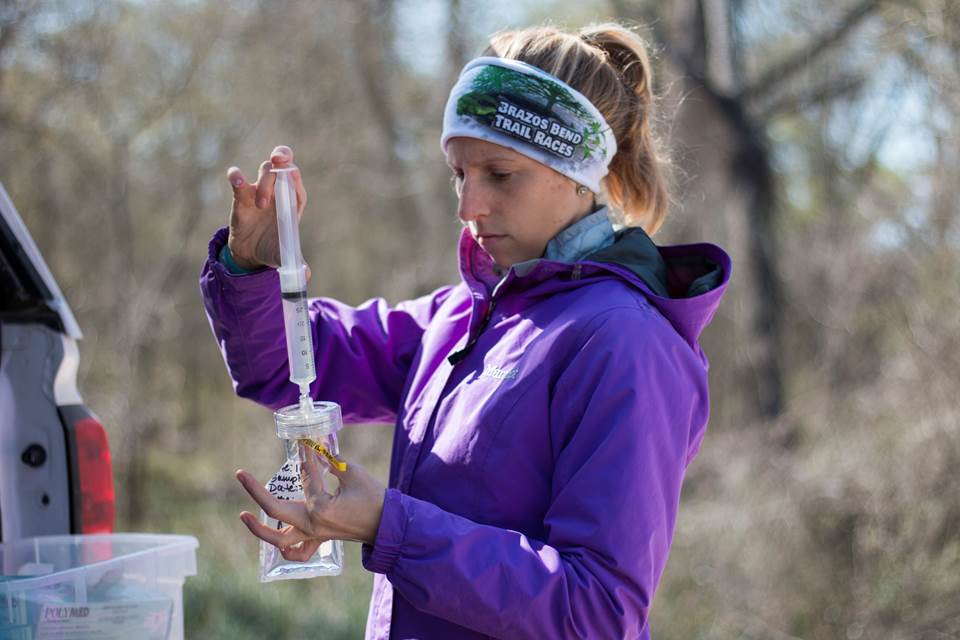
“Industries like ours are dynamic,” Roberts continued. “You’re constantly dealing with issues that may not fall squarely within what’s included in the textbook, or you need to respond to things like regulatory changes all the time. And being able to react to and adapt to some of those dynamic things is a really important skill that I look for in anyone that I’m looking to hire.”
Former and current water students explain
Six current water students or recent graduates from the Texas A&M University Water Management and Hydrological Sciences (WMHS) program currently work with water systems through the Texas Water Resources Institute (TWRI). All offered their advice and shared their experiences on what has best prepared them and what they wished they had studied.
Preparation for water work started in the classroom for these working students. Half of the WMHS group identified a specific class (CVEN 664: Water Resources Engineering, Planning Management) as an important experience from the program.
Nathan Glavy, a former extension specialist with TWRI, said the class was useful because the professor provided a systemic overview of water, with an income-outcome, logic-based approach to problem solving within that system.
Jacqueline Rambo, a former graduate research assistant with TWRI, also noted the systemic nature of how the class is taught. She explained that the professor emphasized working with a variety of stakeholders, “to make sure that the best solutions happen. And I think that is the most important thing that I learned from that class, because I think that concept is applicable to so many fields.”
Half of the WMHS group also mentioned classes in GIS as being especially important in their current work. Stephanie deVilleneuve, a research specialist at TWRI, said she took one GIS class while she was working on her master’s degree. At the time she was not sure she would ever use the information. Her opinion has changed since then.
“I wish I had taken more GIS classes,” she said.
The majority of the WMHS group also stressed the high value of the interdisciplinary nature of the program. Luna Yang, a research specialist with TWRI, explained how the flexibility in the program allowed her to take classes from many different departments. One class she has found particularly helpful was the statistics class she took in the Texas A&M Department of Statistics. There she learned about algorithms in a more in-depth way than she would have in an applied statistic class, a skill she is finding very valuable in her work today.
Anna Gitter, Ph.D., a former research specialist at TWRI, summarized these experiences well:
“There’s not one single issue that you ever encounter that’s in a narrow, specific discipline. There’s always going to be an interdisciplinary nature to it. I would probably just say that was what has been most viable coming from this program.”
Almost even a bigger part than having a technical skill coming in is having the right attitude and personality, willing to learn and wanting to learn and wanting to do the best that you can do
Workplace challenges and continued learning
Many of these non-technical skills needed in the professional water world are fostered in the Texas A&M WMHS program through the interdisciplinary nature of the program. While the program promotes written and verbal communication, there is one aspect that posed a challenge for the six TWRI working students in their professional lives: communicating with stakeholders.
“Not everyone is a scientist, so you have to portray information in a way that everyone can understand,” said Ryan Marrero-Villa, a graduate research assistant at TWRI. “So when I have to make presentations for stakeholder meetings, I have to present in a way that is not overwhelming, is not confusing, and they get the main points.”
Yang suggested that it might be helpful to have a seminar on communicating science for the public as part of the WMHS program.
In addition to the challenge of communicating with a variety of stakeholders, the WMHS group also identified some individual challenges they were not prepared for. Examples include new and unfamiliar content, work habits and organization, and time management. Despite the few challenges they identified, they all felt prepared to deal with new challenges.
As Gitter explained, “one thing you learn in grad school is you have to be able to teach yourself how to do things and how to learn things.”
Preparing for the future
Though the changing landscape of the water industry and the current difficulty finding good workers provide challenges, water professionals are energized for the future. The industry itself is adapting to the changing needs of the people it serves.
Water professionals are increasingly recognizing the issues of equity and social justice as important in what they do today, Ickert said. She has experienced these issues from the perspective of flooding, but she said it is important to understand what it means to water organizations and how they need to respond.
Gehrig explained that one way TRWD is responding to social equity issues in the water industry is by participating in a high school internship program for disadvantaged students. The water district is partnering with Cristo Rey Fort Worth College Prep to show students the variety of careers available at TRWD, especially so students will see what is possible and that not everyone who works in water is an engineer.
Kathleen Vaught, public relations specialist for NTMWD, said that the water sector is a great one for students to pursue.
“This is a very rewarding career,” she said. “The salary and benefits are wonderful; it’s a well-paying industry. You can really make a career here.”
To prepare for a career in the water industry, deVilleneuve recommended that students in a water program be as focused as possible from the very beginning.
“Really focus on where you want to be, the kinds of people that you want to interact with, with your research, and learn as much as you can about them,” she said. She added that students may want to take as many GIS classes as possible.
Yang’s advice for students entering the WMHS program was to take advantage of the interdisciplinary aspect of the program and take as many different classes as possible during the first year or year and a half. She also said to sign up for, and actually attend, the seminars because they are really helpful.
Both Marrero-Villa and Rambo recommended anyone interested in the water industry should experiment with jobs and volunteer to try new things. They also recommended not shying away from things outside of one’s field, because not everyone takes a straight path to their career.
Glavy and Gitter both emphasized the importance of networking and getting to know people, because who you know can often be even more powerful than what you know when it comes to finding a job.
Professionals from the water industry also have some great advice for future water industry workers. They recommend building a good knowledge base by taking STEM classes, taking advantage of different professional organizations and visiting the local water treatment center. It is also possible to learn a lot from talking to people in the industry and pursuing internships, co-ops and volunteer opportunities. Finally, take advantage of training and educational opportunities at local colleges and universities.
Ickert neatly summarized all of the good advice:
“Go for it! Learn as much as you can, and get as much real-world experience as you can. It is important work.”
Explore this Issue
Authors
September Martin is a former graduate communications intern for the Texas Water Resources Institute. September worked with the institute’s communications team to increase visibility and understanding of water science and management issues in Texas and beyond. She wrote articles for TWRI publications, assisted with editing content for a variety of outlets and helped with other projects and tasks as needed.

